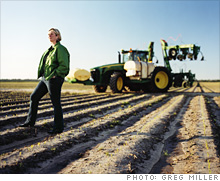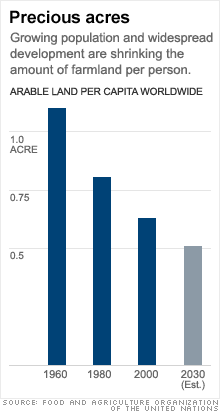Middle East still keen to snap up foreign farmland

Media About Investing in Farmland



By editor|Jan 15, 2010, 10:52 AM|Author's Website
Buying distressed commodities is a better way to make money than investing in stocks, billionaire investor Jim Rogers told CNBC Friday.
“The fundamentals [for agriculture] have gotten better,” Rogers said. “The inventories are now at the lowest they’ve been in decades, not in years.”
“Sometimes in the next few years we’re going to have very serious shortages of food everywhere in the world and prices are going to go through the roof.”
According to Rogers, the problems of the world are not yet behind us ; which is why he believes that commodities are likely to win in both the optimistic and the pessimistic scenario. If the world economy gets better, commodities prices will rise as a result of increased demand caused by shortages, while if the world economy continues to remain weak, central banks will keep printing money and commodities will be used as a hedge against inflation, Rogers explained.
When asked about other commodities, Rogers said he is holding on to oil and he is also holding on to gold, adding “If you want to buy precious metals I’d rather buy silver and palladium, just because they’re cheaper.”


 |
| Harvesting profits: Shonda Warner left the hedge fund industry to start a firm that invests in agricultural land like this acreage near Clarksdale, Miss. |
